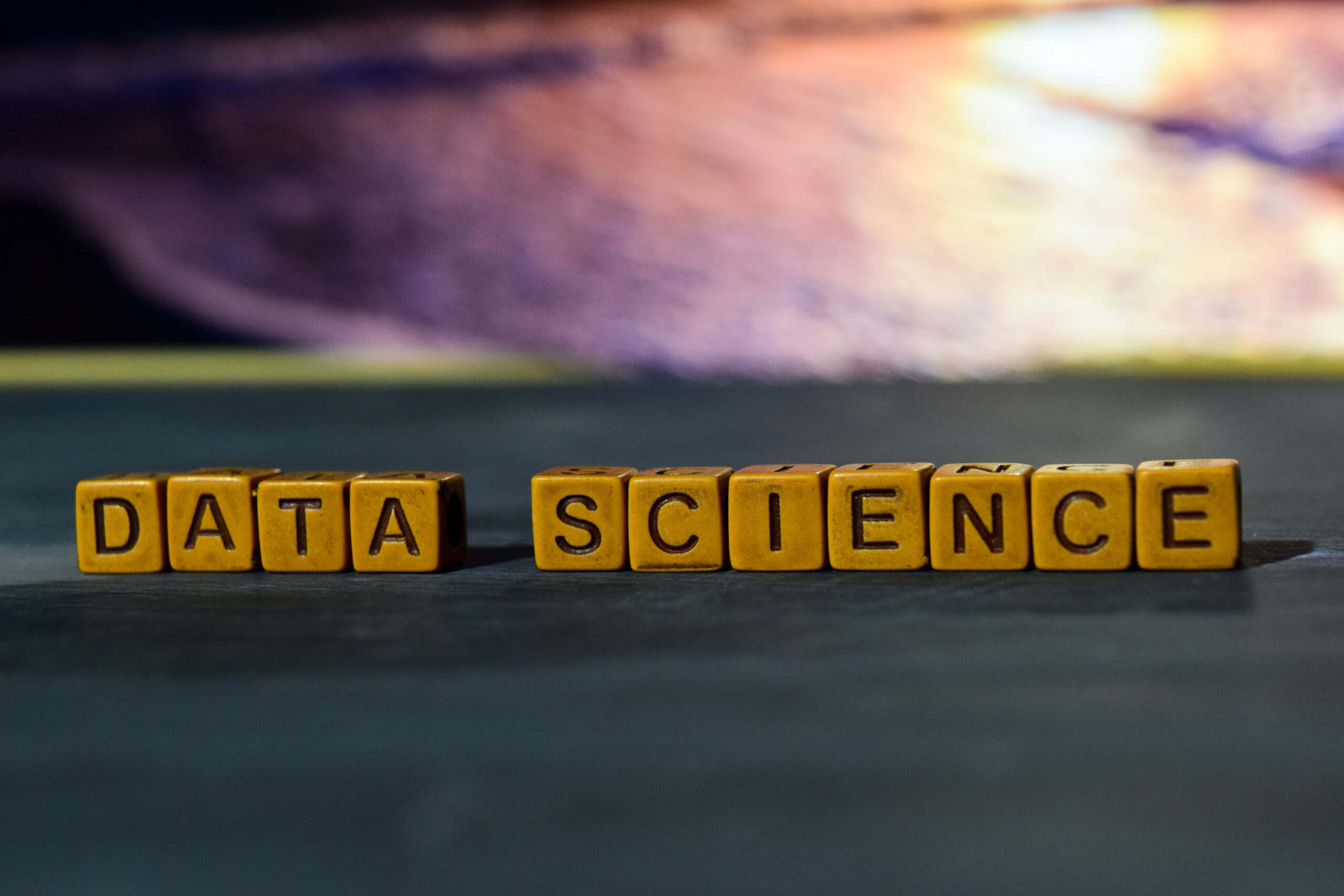As data science evolves, anticipating transformative trends by 2025 is essential. This article highlights ten key developments, including AI automation, ethics, and interdisciplinary collaboration, set to revolutionize the field. These advancements will shape your role, create opportunities, and tackle global challenges. Understanding these trends will help you adapt your skills, remain competitive, and contribute to innovative solutions in the years ahead.
The Rise of AI-Driven Automation in Data Science

Streamlining Routine Tasks
As we approach 2025, artificial intelligence is revolutionizing the field of data science by automating time-consuming, repetitive tasks. AI-powered tools are now capable of handling data cleaning, feature engineering, and even model selection with unprecedented efficiency. This automation allows data scientists to focus their expertise on more complex problem-solving and strategic decision-making, significantly enhancing productivity and innovation in the field.
Enhancing Model Building and Optimization with Data Science
AI is not just automating routine tasks; it’s also transforming the model-building process itself. Machine learning algorithms can now generate and test thousands of model variations in a fraction of the time it would take a human data scientist. This rapid iteration and optimization lead to more accurate and robust models, pushing the boundaries of what’s possible in predictive analytics and machine learning applications.
Democratizing Data Science
The integration of AI automation in data science tools is making advanced analytics more accessible to a wider range of professionals. No-code and low-code platforms, powered by AI, are enabling business analysts and domain experts to perform complex data analysis without extensive programming knowledge. This democratization of data science is fostering a new era of data-driven decision-making across industries, from marketing to healthcare and beyond.
Embracing Ethical Practices for Responsible Data Science
As data science continues to evolve, the importance of ethical practices has become paramount. By 2025, we expect to see a significant shift towards responsible data science that prioritizes transparency, fairness, and privacy.
Transparency in AI Models Using Data Science
Transparency will be a key focus, with data scientists developing explainable AI models. You’ll need to ensure that your algorithms can be easily interpreted and understood by both technical and non-technical stakeholders. This transparency will build trust and enable better decision-making based on AI-driven insights.
Mitigating Bias in Data and Algorithms
Addressing bias in data and algorithms will be crucial. You’ll need to implement rigorous testing procedures to identify and eliminate biases that could lead to unfair or discriminatory outcomes. This may involve diverse data collection methods and regular audits of your AI systems to ensure equitable results across all demographics.
Data Science: Prioritizing Privacy and Security
With increasing concerns about data breaches and misuse, prioritizing data privacy and security will be non-negotiable. You’ll need to adopt robust data protection measures, including advanced encryption techniques and strict access controls. Additionally, you’ll need to stay updated on evolving data protection regulations to ensure compliance across different jurisdictions.
By embracing these ethical practices, you’ll not only contribute to the responsible advancement of data science but also build trust with your stakeholders and end-users.
Interdisciplinary Collaboration: Bridging Domains for Innovative Solutions
As it continues to evolve, the importance of interdisciplinary collaboration is becoming increasingly evident. By 2025, we expect to see a surge in partnerships that bring together data scientists and domain experts from various fields, leading to groundbreaking solutions and discoveries.
Synergizing Expertise for Complex Problem-Solving
The fusion of data science with domain-specific knowledge is proving to be a powerful combination. For instance, in healthcare, data scientists are working alongside medical professionals to develop predictive models for early disease detection and personalized treatment plans. This synergy allows for more accurate and contextually relevant insights, as domain experts can provide crucial interpretations of data that might otherwise be overlooked.
Expanding the Horizons of Data Science Applications
Interdisciplinary collaboration is also opening up new frontiers for data science applications. In fields such as environmental science, data scientists are partnering with ecologists to analyze complex ecosystems and predict the impacts of climate change. Similarly, in social sciences, collaborations between data scientists and sociologists yield novel insights into human behavior and societal trends.
Fostering Innovation through Diverse Perspectives
By bringing together professionals from different backgrounds, interdisciplinary teams are better equipped to tackle multifaceted challenges. This diversity of thought not only enhances problem-solving capabilities but also drives innovation by approaching issues from multiple angles. As we move towards 2025, expect to see more cross-pollination of ideas and methodologies across various sectors, leading to more robust and creative data-driven solutions.
Democratizing Data Science: Empowering Small and Medium Enterprises
As we approach 2025, the democratization of data science is set to revolutionize how small and medium enterprises (SMEs) operate. This trend is breaking down barriers and opening up new possibilities for businesses of all sizes to harness the power of data-driven decision-making.
Accessibility and Affordability
The rise of cloud-based analytics platforms and user-friendly tools is making sophisticated data analysis more accessible and affordable for SMEs. These solutions often come with pre-built models and intuitive interfaces, allowing businesses to gain insights without the need for a dedicated data science team.
Competitive Edge Through Data
SMEs can now compete more effectively with larger corporations. From optimizing inventory management to personalizing customer experiences, data-driven strategies are helping smaller businesses punch above their weight in increasingly competitive markets.
Upskilling and New Roles
As data science becomes more integral to business operations, we’re seeing a surge in demand for data-related skills across various roles. This trend is creating new career opportunities within SMEs, with employees increasingly expected to have some level of data literacy. The emergence of “citizen data scientists” – professionals who can perform simple to moderate complexity data science tasks – is bridging the gap between technical expertise and business acumen.
Data Science for Sustainability: Optimizing Energy and Tracking Carbon Footprints
As environmental concerns take center stage globally, data science is emerging as a powerful tool in the fight against climate change. By 2025, we expect to see a significant increase in the application of data-driven solutions to sustainability challenges.
Optimizing Energy Usage
Data scientists are developing sophisticated algorithms to analyze energy consumption patterns across industries. These models can identify inefficiencies and suggest optimizations, leading to substantial energy savings. For example, smart building systems use real-time data to adjust heating, cooling, and lighting, reducing energy waste without compromising comfort.
Tracking and Reducing Carbon Footprints
Advanced analytics are enabling organizations to accurately measure their carbon emissions across complex supply chains. Machine learning models can process vast amounts of data from multiple sources to create detailed carbon footprint assessments. This granular insight allows companies to pinpoint areas for improvement and set realistic reduction targets.
Predictive Modeling for Renewable Energy
Data science is playing a crucial role in maximizing the potential of renewable energy sources. Predictive models use weather data and historical patterns to forecast solar and wind energy production, enabling more efficient grid management and reducing reliance on fossil fuels.
By leveraging big data and AI, data scientists are not only helping organizations become more environmentally friendly but also contributing to global efforts in combating climate change. As we approach 2025, the intersection of data science and sustainability will undoubtedly become an increasingly important field of study and application.
In Short
As you navigate the evolving landscape of data science towards 2025, it’s crucial to stay informed and adaptable. Embracing AI automation, prioritizing ethical practices, and fostering interdisciplinary collaboration will be key to your success in this field. By leveraging emerging technologies and methodologies, you’ll be better equipped to tackle complex challenges and drive innovation. Remember that as data science becomes more accessible and widespread, your unique insights and problem-solving abilities will become even more valuable. Stay curious, continue learning, and be prepared to apply your skills in new and unexpected ways. The future of data science is bright, and your role in shaping it is more important than ever.
 Previous post
Apple’s $95 Million Settlement: Siri’s Unintended Eavesdropping Costs Company Millions
Previous post
Apple’s $95 Million Settlement: Siri’s Unintended Eavesdropping Costs Company Millions
More Stories
Confluent Unifies Real-Time and Historical Data to Power Next-Gen AI and Analytics
Confluent has made major progress by upgrading its Confluent Cloud platform. These enhancements aim to unify data streams for advanced AI applications.
ChatGPT Deep Research Now Integrates with Dropbox and Box for Enhanced Data Access
ChatGPT Deep Research integration with Dropbox and Box enhances data access for users enabling them to link cloud storage accounts directly to Deep Research.
Proofpoint Acquires Hornetsecurity to Strengthen Microsoft 365 Security for SMBs
Proofpoint has announced the acquisition of Hornetsecurity to strengthen cybersecurity for small and medium-sized businesses (SMBs). Hornetsecurity is a leading European provider of AI-driven Microsoft 365 security solutions.
Meta Accelerates Scientific Discovery with Massive AI-Driven Chemistry Dataset
Meta has made an ambitious leap toward revolutionizing scientific discovery and research. It introduced Open Molecules 2025, an AI-driven chemistry dataset.
Qlik Integrates Agentic AI and Launches Open Lakehouse to Enhance Autonomous Analytics
In the rapidly evolving landscape of enterprise analytics, Qlik’s latest announcements at the Qlik Connect 2025 conference mark a transformative...
Qwen3: Alibaba’s Open-Source AI Breakthrough Redefining Global Innovation
Alibaba’s Qwen3 emerges as a groundbreaking force, poised to redefine the paradigms of global innovation. As you delve into this open-source marvel, you will discover how Qwen3 is not just another AI model but a sophisticated suite of eight advanced architectures, including the revolutionary Mixture-of-Experts (MoE).

